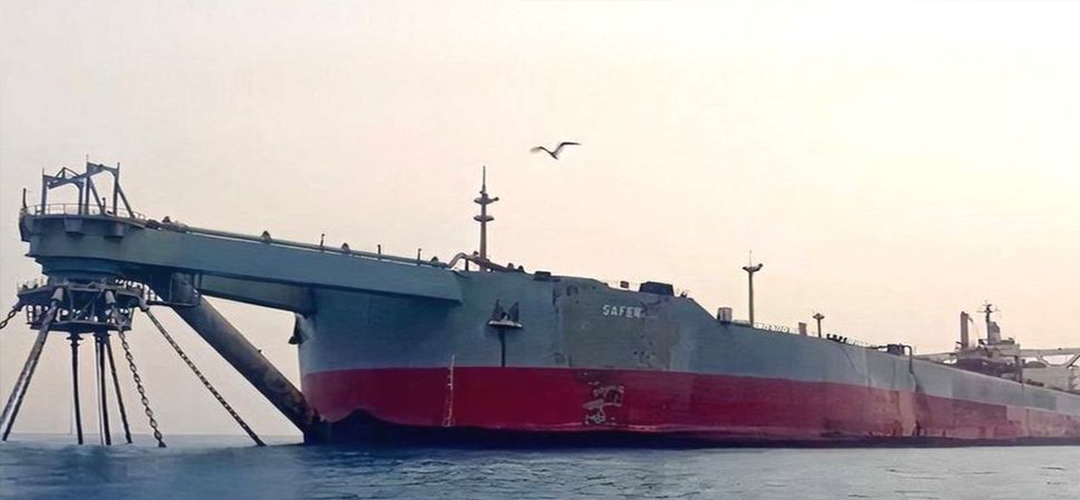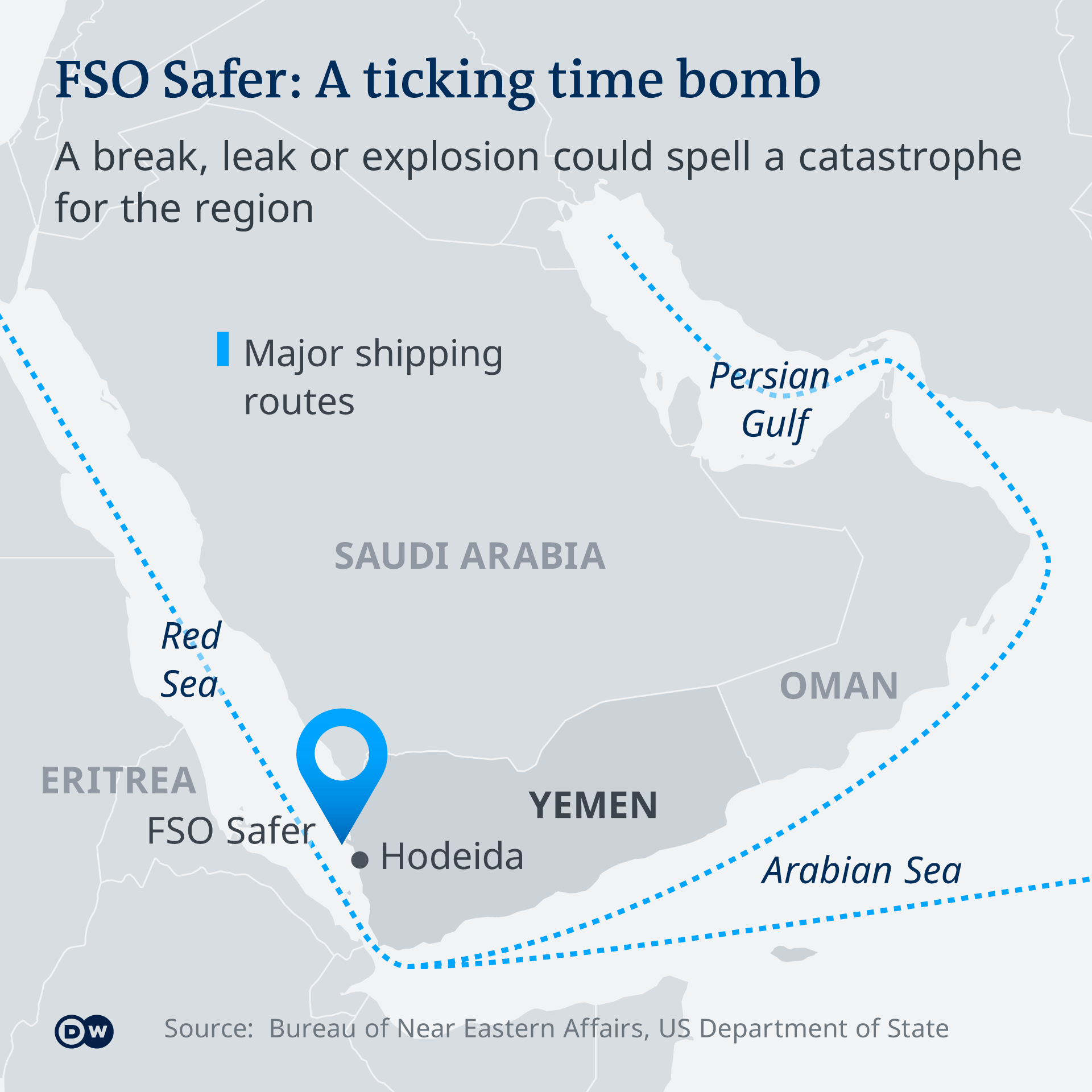A MESSIAH IS NEEDED!
September 17, 2022 | Expert Insights

Oil spills occur in various ways and are more frequent than one may imagine. Most spills are minor, like oil leaks while fuelling a ship. Large oil spills are dangerous events that frequently occur due to broken pipelines, sinking oil tankers, and problematic drilling operations. On an overview, oil spills engulf everything they encounter and permanently alter every environment they inhabit.
The ‘FSO Safer’ is a corroding tanker with over 1.1 million barrels of Marib light crude anchored in the Red Sea approximately four miles away from the coast of Yemen, where one of the biggest humanitarian tragedies is already unfolding. Without maintenance for the last seven years and its structural integrity endangered, the ship is in grave danger of an explosion and oil spillage.
Background
Constructed in 1976 in Japan for the Esso company, the Yemeni government purchased the tanker in 1987. It was converted as a non propelled oil storage and transfer vessel that fell into the hands of rebel Houthis in 2015. Since it still contains oil worth nearly $80 million, the Houthis are holding on to it but lack the expertise or means to unload the oil. Of course, the Yemeni government is unwilling to assist. Caught in limbo, the ship is rusting and deteriorating by the day.
Climate activists, including Greenpeace, are trying to resolve the issue, but little progress has been made due to the warlike situation.

Analysis
The writing is clearly on the wall and can no longer be ignored. The latest study by the Greenpeace Research Laboratories indicates that the impact of an oil spill could be four times bigger than the Exxon Valdez disaster. The Exxon Valdez impacted 1300 miles of coastline in U.S. Alaska in 1989, damaging local economies and communities and flora and fauna ecosystems. But then Exxon was a rich company, and Alaska was U.S. territory. The company had to pay $300 million to the Alaskans and businesses affected in addition to $1 billion to state and federal governments. In the case of FSO Safer, there is no one to foot the bill.
Oil spills have a long-term impact as nature takes time to recover. For instance, despite substantial clean-up efforts after the Exxon Valdez oil spill, a study conducted by the National Oceanic and Atmospheric Administration (NOAA) 25 years later found that 26,000 gallons of petroleum remained lodged in the sand along the Alaskan shoreline.
If FSO Safer starts leaking oil due to increased wave action this winter, the spill will impact Djibouti, Eritrea, and Saudi Arabia. More worryingly, it may interrupt shipping lanes to and from the Suez Canal and bring to a closure the Red Sea resort tourism and the local industries that support it.
The Red Sea is renowned for its exquisite marine habitat -its mangroves and reefs. Blessed with good fishing areas, it could take a quarter of a century to restock the fisheries. The fishing industry directly or indirectly employs about 2 million people.
A solution to this looming problem demands two courses of action; installation of a replacement vessel within 18 months and an urgent four-month expedition to transfer the oil from the deteriorating tanker to a secure interim vessel.
The emergency operation is estimated to cost around $ 140 million, out of which about $80 million can be recovered from the onboard oil. However, moving the oil to another temporary storage vessel for another four to five months till long-term ground-based storage can be created will also cost another $ 80 million. The UN has taken on the responsibility of supervising the operation but lacks funding from member countries.
The issue is that neither the first stage's funding nor credible political arrangements are in place to allow for the oil transfer. The United Nations has so far raised $70 million in donations from several nations, including Saudi Arabia and Germany.
Assessment
- The greater danger is if the tanker sinks in the Red Sea, the cleaning operations will stop, at least for a period, the transoceanic transport lanes through the Suez Canal. Suez, which links the Mediterranean with the Red Sea, is considered the conduit for 12 per cent of all global trade. It may be recollected how huge the financial loss globally was when the Suez Canal traffic was blocked in 2019 by a ship.
- The Red Sea ports of Hodeidah and Salif, the principal entry points into Yemen, may be closed. 68 per cent of food aid moves through these ports on which over 8 million people are dependent for survival.
- The UN and the global community must intervene robustly to avert a humanitarian and environmental disaster.








Comments